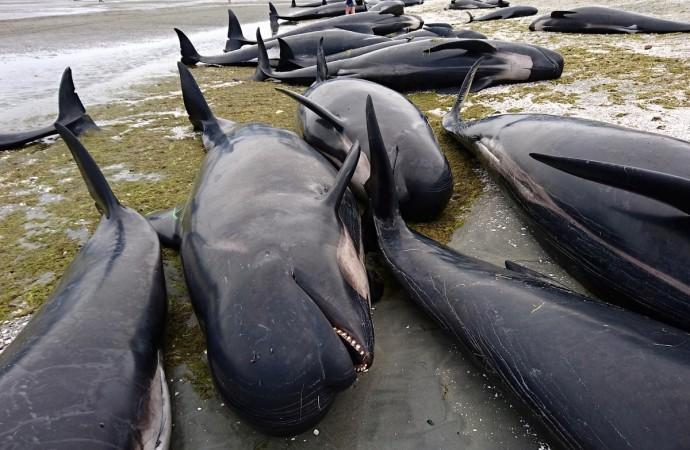
About 300 pilot whales died when they were stranded on a beach in New Zealand on Friday. Desperate efforts are underway to save about 100 whales still alive. It is the third largest mass stranding in New Zealand's history.
New Zealand beach: Over 400 pilot whales stranded on Farewell Spit beach, majority reported dead
Here are 8 things you need to know about Pilot Whales
- Pilot Whales are actually dolphins and are the largest members of the oceanic dolphins. They, and other large members of the dolphin family, which includes Killer Whales (Orcas) are called Blackfish.
- They are one of the very few mammal species that go through menopause, which they are thought to do to limit pod populations, hence making sure that available resources are enough for the entire pod.
- Pilot whales are known to strand themselves on beaches or in lagoons. Although it is not conclusively known why they do this, one theory suggest that as Pilot whales use the Earth's magnetic field to navigate, an anomaly could see them lose their bearing and get stranded.
- The Pilot Whale gets the name 'pilot' from the fact that pods usually follow a pod leader, also known as a 'pilot'.
- Pilot Whales are found in most oceans, and usually live and move in pods ranging from 10 to 30 individuals, although some pods of up to 100 individuals have been documented.
- Very little is known about the Pilot Whale population, in fact the IUCN has labeled it 'Data Deficient', but considers it a threatened species.
- Japan hunts Pilot Whales for their meat, a practice that has seen Japanese whaling boats come into violent contact with animal activist groups like Greenpeace and Sea Shepherd.
- Pilot Whales have been kept in captivity in marine parks across the world, but they have a notoriously low life expectancy in captivity. The longest-lived Pilot whale in captivity was Bubbles, who lived inot her 50s at SeaWorld. She died on June 12, 2016.










